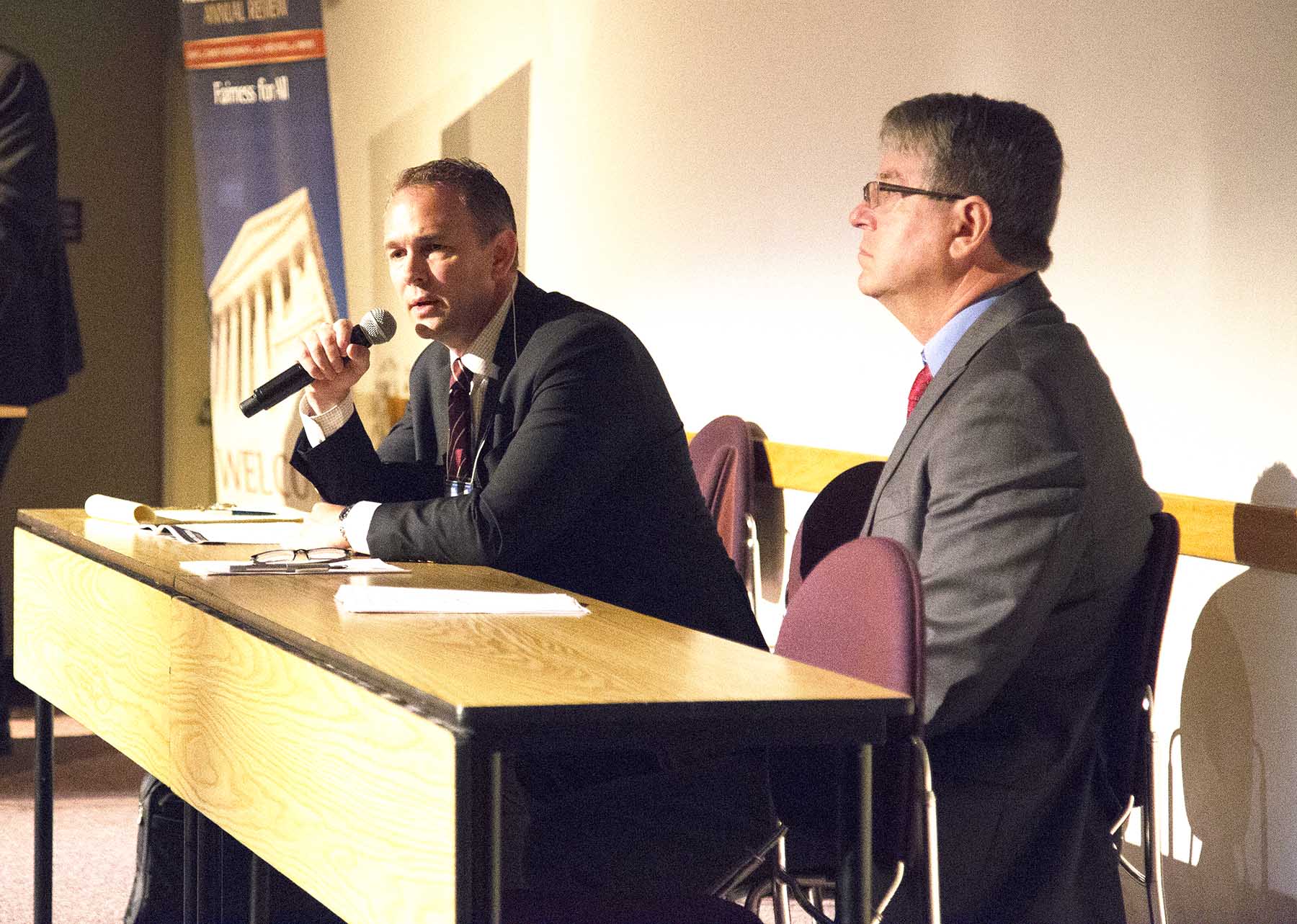Religious Freedom Annual Review 2016 Friday Morning Plenary Session: What Should Religious Freedom Mean in Society? Prioritizing Religious Freedoms

by Joshua Prince
In the opening plenary session of the second day of the conference, W. Cole Durham, Jr., Founding Director of the International Center for Law and Religion Studies moderated a discussion between Alexander Dushku, a shareholder at Kirton & McConkie, and Steven D. Smith, Warren Distinguished Professor of Law and Co-Executive Director, Institute for Law and Religion, University of San Diego School of Law. Both Alexander Dushku and Steven D. Smith spoke on the issues threatening religious freedom in the United States. Each diagnosed the problem that religious freedom is facing differently; Dushku attributed the decline in religious freedom to an increase in individualism which views religion as something tyrannical, rather than empowering, while Smith attributed it to a decrease in religiosity as a whole, what he called a movement from the dual sovereignty of “God and Caesar” to one of Caesar alone.
Alexander Dushku prescribed four “Religious Freedom Imperatives” to reverse course and reprioritize religious freedom:
1.We must have a clear understanding of the cultural moment.
2.We must speak on and advocate religious freedom.
3.We must not overreach – we need to prioritize which freedoms are most vital and start there.
4.We need to get involved in defending religious freedom in meaningful ways.
He commented how religion can seem to be quite contrary to the individualism of the day, and mentioned that it is for that reason that we must use personal narrative to describe the effects of religious freedom, or the lack thereof, on our lives. Too often we frame religious freedom as a constitutional right, an argument that in our contemporary age is no longer persuasive. If we are to be successful at defending religious freedom, we should frame it as an individual freedom instead. Mr. Dushku mentioned that we live in a time where it is incredibly important to first be true to yourself and second, never stand in the way of others being themselves. It is within this framework that we must work.
Steven D. Smith spoke of a decline in religiosity as a cause of declining religious freedom. He cited the country’s history and how in the past, there was a “Christian or biblical regulatory ideal” where both religion and government were important parts of people’s lives. Since then, there has been “not just a different, but a fundamental reorientation” of society. He spoke of how the government today, in light of this decline in religiosity, makes accommodations for many different reasons yet fails to make them for religious freedoms. Professor Smith mentioned that this fundamental reorientation has resulted in a shift from God and Caesar as the two governing bodies in society to one of just Caesar, where the government is entrusted with much more than it would have been just fifty years ago.